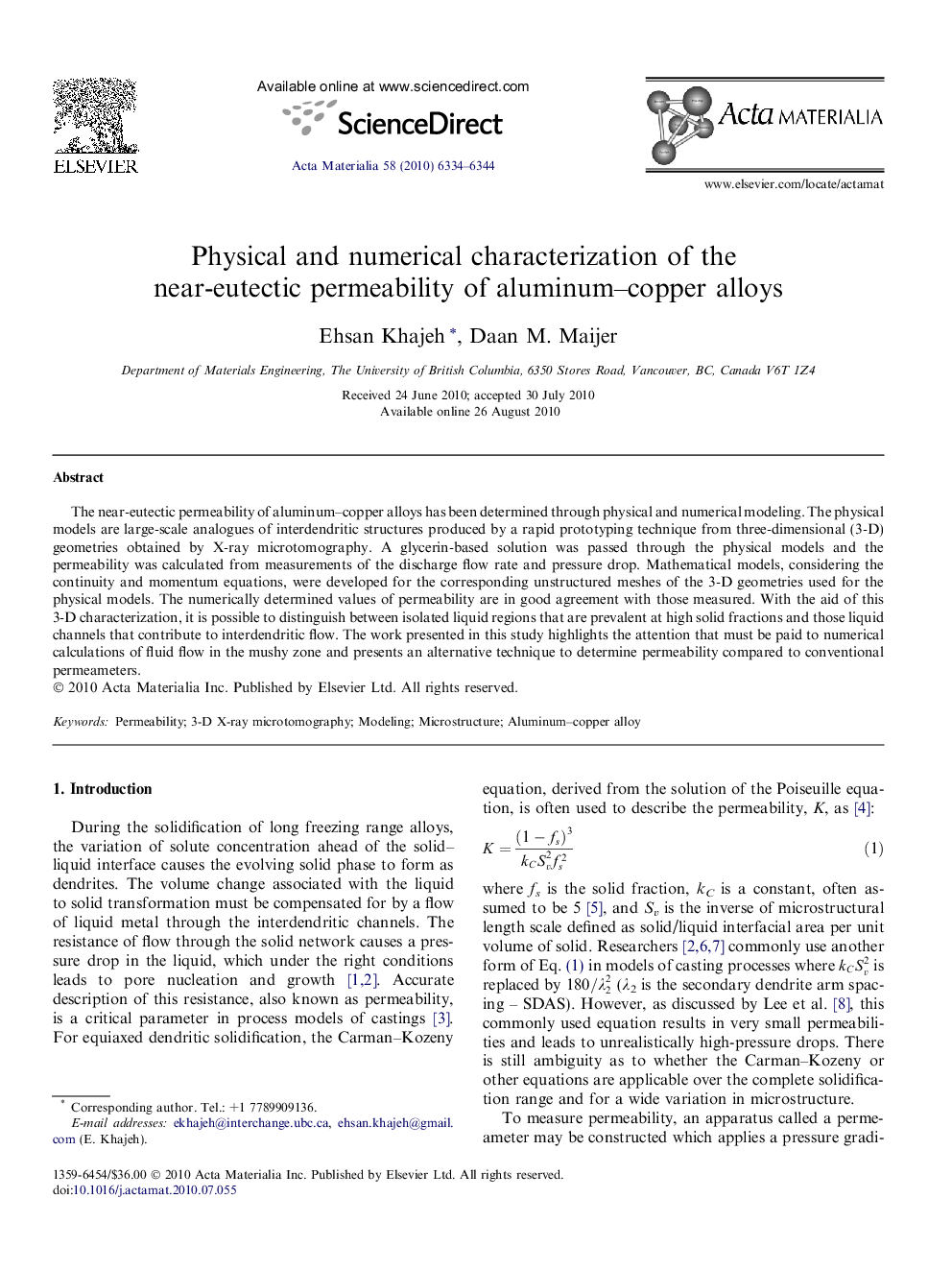| Article ID | Journal | Published Year | Pages | File Type |
|---|---|---|---|---|
| 10620657 | Acta Materialia | 2010 | 11 Pages |
Abstract
The near-eutectic permeability of aluminum-copper alloys has been determined through physical and numerical modeling. The physical models are large-scale analogues of interdendritic structures produced by a rapid prototyping technique from three-dimensional (3-D) geometries obtained by X-ray microtomography. A glycerin-based solution was passed through the physical models and the permeability was calculated from measurements of the discharge flow rate and pressure drop. Mathematical models, considering the continuity and momentum equations, were developed for the corresponding unstructured meshes of the 3-D geometries used for the physical models. The numerically determined values of permeability are in good agreement with those measured. With the aid of this 3-D characterization, it is possible to distinguish between isolated liquid regions that are prevalent at high solid fractions and those liquid channels that contribute to interdendritic flow. The work presented in this study highlights the attention that must be paid to numerical calculations of fluid flow in the mushy zone and presents an alternative technique to determine permeability compared to conventional permeameters.
Keywords
Related Topics
Physical Sciences and Engineering
Materials Science
Ceramics and Composites
Authors
Ehsan Khajeh, Daan M. Maijer,
